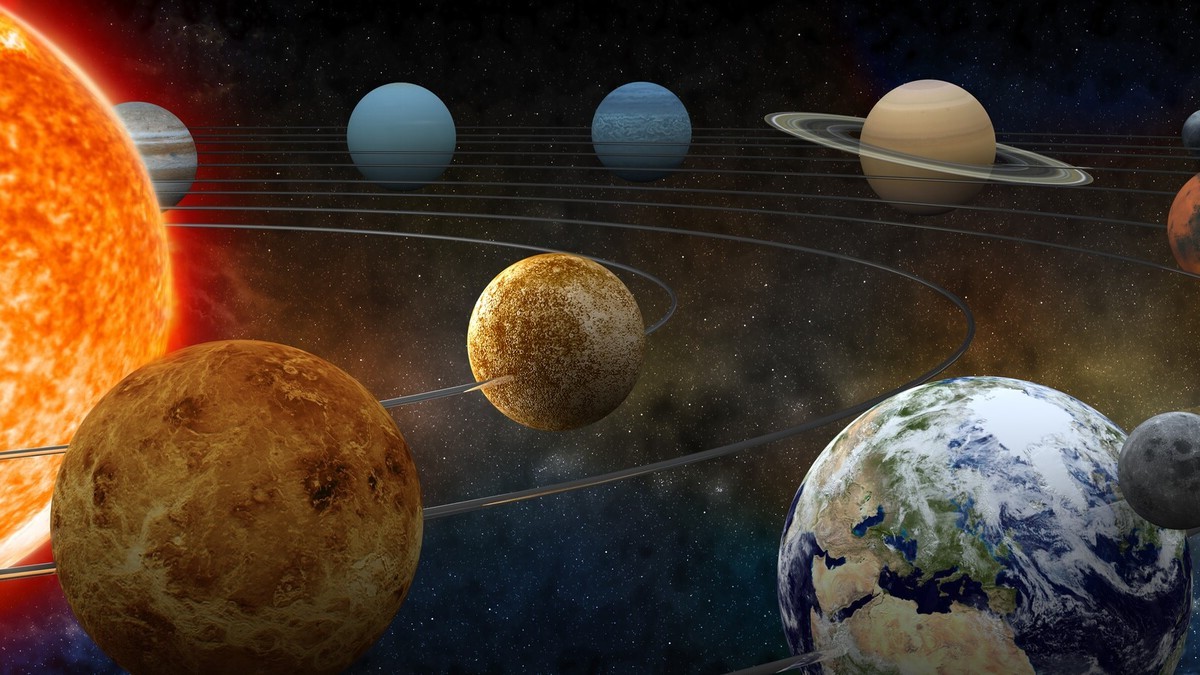
Anthropic principles are fascinating concepts that bridge the gap between science and philosophy, suggesting reasons why the universe has the conditions necessary for life. At its core, this principle proposes that the universe's laws and constants are finely tuned to allow for the existence of observers like us. Why does this matter? Well, it challenges us to think about our place in the cosmos and the underlying mechanisms that make life possible. From the weak force to the electromagnetic force, every detail seems to be just right for life to flourish. In this introduction, we'll uncover 18 intriguing facts about anthropic principles, shedding light on how they guide our understanding of the universe's fundamental aspects. Perfect for curious minds, this exploration will take you on a journey through the delicate balance of existence and the profound implications it holds for our understanding of reality.
Understanding the Anthropic Principle
The Anthropic Principle suggests that the universe's laws and constants are finely tuned for the existence of life, especially human life. This principle has sparked debates among scientists, philosophers, and theologians about the nature of the universe and our place within it.
-
Anthropic Principle Basics: At its core, this principle posits that the universe's fundamental parameters are set in such a way that they allow for the emergence and evolution of intelligent observers like humans.
-
Strong vs. Weak Anthropic Principle: The Weak Anthropic Principle (WAP) states that the universe's observed conditions must allow the observer to exist. In contrast, the Strong Anthropic Principle (SAP) suggests that the universe must have properties that eventually lead to the development of intelligent life.
The Science Behind Anthropic Principles
-
Fine-Tuning of the Universe: Scientists have identified several constants and laws in physics that appear finely tuned for life. For example, if the force of gravity were slightly stronger or weaker, stars and planets might not have formed in a way that supports life.
-
Carbon-Based Life: The existence of carbon, a critical element for life as we know it, relies on specific nuclear conditions in stars. This is often cited as an example of the universe's fine-tuning.
-
The Cosmological Constant: This is a value that represents the energy density of the vacuum of space. Its incredibly precise value allows the universe to expand at a rate that supports the formation of galaxies and stars.
Philosophical Implications
-
Implications for Existence: Some interpret the Anthropic Principle as suggesting a purpose or design behind the universe, leading to philosophical and theological discussions about the nature of existence and creation.
-
Criticism and Controversy: Critics argue that the Anthropic Principle is a form of circular reasoning, stating that it is not surprising we find the universe to be life-permitting because we are here to observe it.
Anthropic Principle in Multiverse Theory
-
Multiverse and Anthropic Principle: In theories of the multiverse, where many universes with different physical constants exist, the Anthropic Principle helps explain why we find ourselves in a universe that supports life.
-
Selection Bias: The idea of a multiverse introduces the concept of selection bias – we can only observe and measure conditions in a universe that allows for our existence, out of potentially many universes where life is impossible.
Impact on Scientific Research
-
Guiding Research: The Anthropic Principle has influenced some areas of cosmology and physics, guiding researchers to consider why the universe appears to be fine-tuned for life.
-
Limits of Science: It also highlights the limits of scientific explanation, as some aspects of the universe's fine-tuning might remain beyond our understanding or explanation.
Anthropic Principle and Technology
-
SETI and the Anthropic Principle: The Search for Extraterrestrial Intelligence (SETI) is informed by the Anthropic Principle, as it operates under the assumption that if the universe is fine-tuned for life, there might be other intelligent life forms out there.
-
Astrobiology: This field of study, which seeks to understand the potential for life on other planets, also draws on the Anthropic Principle, considering the specific conditions required for life to arise.
Future Directions
-
Further Research: Ongoing research in physics, cosmology, and astrobiology continues to explore the implications of the Anthropic Principle, seeking to understand more about the universe's fine-tuning and the potential for life elsewhere.
-
Philosophical and Theological Dialogue: The Anthropic Principle remains a fertile ground for dialogue between science, philosophy, and theology, as it touches on fundamental questions about the universe and our place within it.
-
Technological Advances: Future technological advances may allow us to test the predictions of the Anthropic Principle more directly, potentially offering new insights into the nature of the universe.
-
Educational Impact: The Anthropic Principle is also becoming a topic of interest in education, helping to spark interest in science and philosophy among students by connecting these disciplines to big-picture questions about the universe.
-
Global Collaboration: As our understanding of the Anthropic Principle grows, it encourages global collaboration among scientists, philosophers, and theologians, highlighting the interconnectedness of our quest to understand the universe and our place in it.
A Final Glimpse at Cosmic Reflections
We've journeyed through the fascinating realm of anthropic principles, uncovering how these concepts bridge the gap between cosmic existence and our understanding of the universe. These principles challenge us to ponder our place in the cosmos, suggesting that the universe's laws might be finely tuned for life, or perhaps, that our existence merely reflects the conditions we find ourselves in. Whether through the Weak Anthropic Principle or the Strong Anthropic Principle, we're invited to explore profound questions about the universe's compatibility with life. This exploration not only expands our knowledge but also deepens our appreciation for the intricate balance that allows life to flourish. As we continue to unravel the mysteries of the cosmos, the anthropic principles serve as a reminder of our unique perspective in the vast expanse of the universe, encouraging curiosity and wonder in our quest for understanding.
Was this page helpful?
Our commitment to delivering trustworthy and engaging content is at the heart of what we do. Each fact on our site is contributed by real users like you, bringing a wealth of diverse insights and information. To ensure the highest standards of accuracy and reliability, our dedicated editors meticulously review each submission. This process guarantees that the facts we share are not only fascinating but also credible. Trust in our commitment to quality and authenticity as you explore and learn with us.


